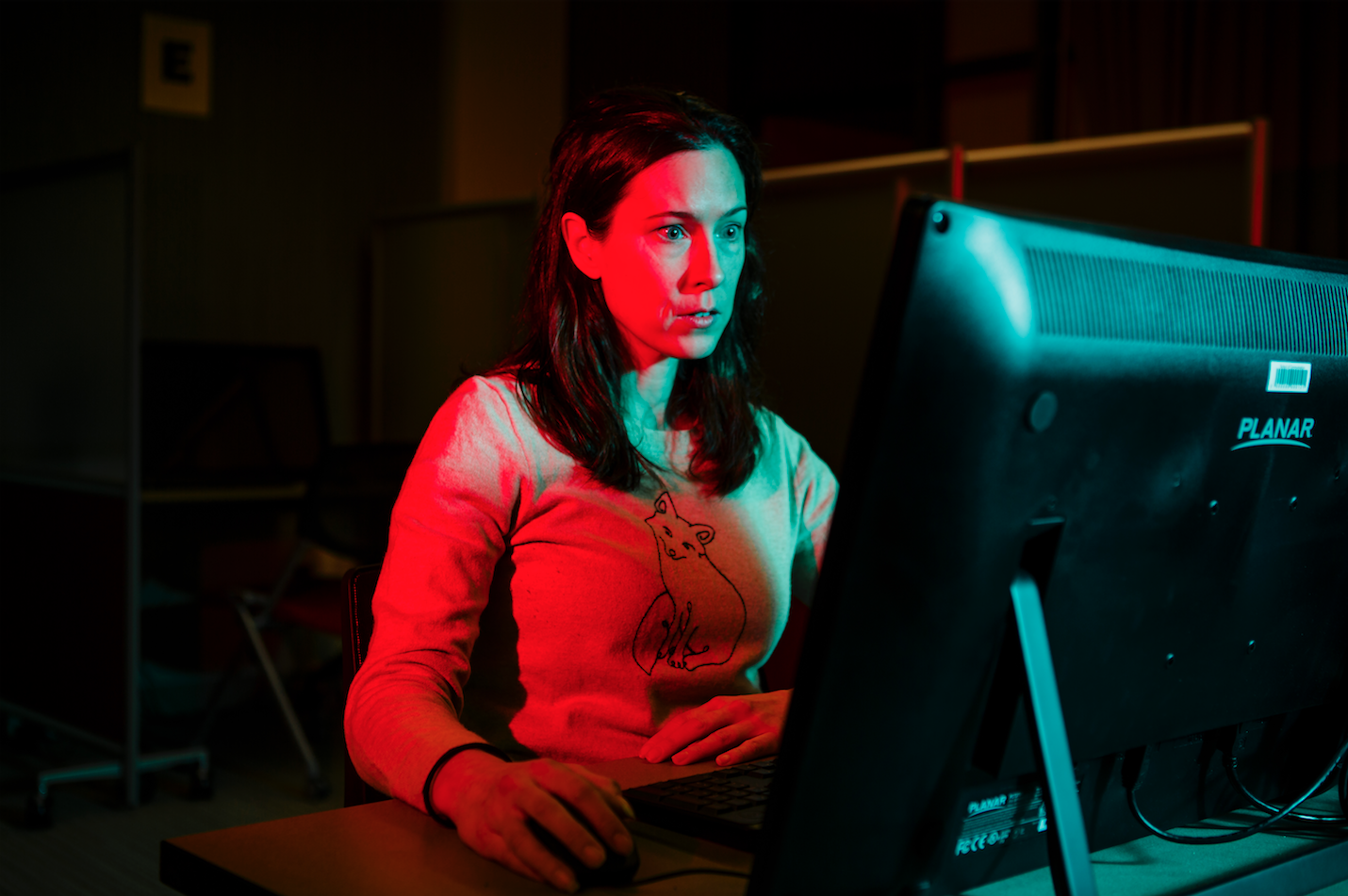OSU Professor Dr. Jesse Fox discusses how online interactions affect our lives

Dr. Jesse Fox says she was privileged as a child. Because both her parents were teachers, she had a computer at home before most other kids her age. She started to dabble in coding, but she says growing up in that changing time, seeing both the old way and the new, kept her questioning whether these new technologies were actually beneficial to ourselves and our society. She turned her curiosity into a career as an associate professor in the School of Communication at The Ohio State University, where she studies technology, virtual spaces, social media and their impacts on our lives.

Fox said that the accessibility that comes with technology has changed expectations for the ways we interact. “Having access to someone all the time creates a lot of different pressures for people,” she said. “It just becomes this expectation, this sort of hyper expectation of connectivity.” In addition, she said there’s a culture in some online communities that can lead to bullying and harassment; not being able to see reactions to this behavior in real time can compound the problems. At the same time, technology allows us access to information on an unprecedented scale, which can aid in understanding issues that are otherwise abstract.
(614) spoke with Fox to learn about her research on technology and our interactions, how to deal with toxic situations online, what we can learn from technology, and what constant connectivity means for us.
(614): Can you talk about the connection between gaming and gaming communities and the negative tendencies those groups are perceived to have?
JF: Most games are competitive. These are environments where people are engaging deliberately, and like aggressive behavior to each other. In that way, a lot of games are very similar to sports and trash talking and that sort of thing. Getting in your opponent’s head has been part of sports for a really long time. That’s a strategy that people use to try to win. And sometimes that can cross a line.
How is communication online related to online harassment?
People are just more likely to unleash that stuff in an environment where there are no consequences. And so, you are less likely to be identified, so you feel more anonymous.
And you also don’t have to see often how your behavior affects someone […]. When we lack those [nonverbal cues], it’s harder for people to detect where that line is, and maybe they don’t understand the consequences of their behavior, and they don’t know that someone is hurt or scared or uncomfortable when they’re saying something. And then some people are just nasty trolls. You know, they are just nasty trolls who are just out there to try to disempower people and make people feel gross or threatened or harassed. And that’s just how they get off.
BROUGHT TO YOU BY
Can you talk about some of the positives that your research has unearthed about relationships in digital and gaming environments?
Online gaming can be a great shared activity for friends, couples, and family members. It can be a convenient way to spend time together and bond even if you’re in di erent states or countries. It also can be an opportunity to make new friends—people you can talk to that are outside of the sphere of your regular life.
You’ve done some research that involves creating virtual environments encouraging people to be more environmentally aware. Can you talk a little bit about what you discovered during that research?
A lot of this work is related to ideas revolving around something we call psychological distance. […] One way you can use virtual reality and virtual environments is bringing that message home to people and saying, “Hey, this is what this looks like, and this is something that you do need to be concerned about,” and try to minimize that psychological distance.
[For example, someone may say], ‘I don’t understand what a polar ice cap melting means […]. Imagine instead of seeing two dimensional pictures, you can be in the middle of it and look around and really experience that. Those can be powerful ways of seeing things, and processing that in a different fashion might […] heighten that sense that this is something that I need to be concerned about.As online gaming and other virtual interactions continue to grow, what safeguards should be in place?
Every player should treat each other respectfully and avoid being nasty to other players; one person might think they’re engaging in normal trash talk, but the recipient might feel hurt or bullied. Players should also be brave enough to set the norm for respectful behavior and to intervene in harassing situations rather than being a bystander. All players should be aware of reporting systems within games and should use them to report bad behavior.
In general parents should be just as aware of who kids are interacting with online as they are of their friends offline. Parents should be monitoring their children’s activity in these spaces regularly and have clear conversations about what’s acceptable behavior, how to deal with bad people in the game, and how to resist peer pressure to engage in bad behavior like ganging up and harassing another player. Parents should be particularly aware of the types of sexist, racist, and homophobic language and harassment that occurs in these spaces and should prepare their kids for how to deal with it.
This interview has been edited for length and clarity. To learn more about Dr. Fox’s work, visit commfox.org
BROUGHT TO YOU BY


